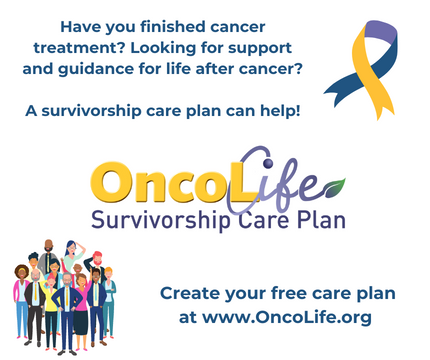Survivorship: Bladder Health After Cancer
Table of Contents
The bladder is a muscular sac that stores urine. It stores urine until it becomes full enough that you feel like you need to urinate (pee). The bladder then releases the urine through your urethra, and it leaves your body. When the bladder is not working right, or if you have an infection in the bladder, it can cause you to leak urine or need to urinate more often than normal. Certain cancer treatments can affect the bladder. This can happen while you are receiving treatment or months to years later. It is important to do what you can to keep your bladder healthy and learn about possible symptoms of bladder issues to report to your healthcare providers.
Who is at risk of bladder problems?
If you received any of the following treatments, you may be at risk for problems with your bladder health:
- Intravesicular chemotherapy, which is chemotherapy that is given directly into the bladder. This leads to "local" side effects or side effects that directly affect the bladder.
- The chemotherapy medicines ifosfamide and cyclophosphamide (Cytoxan) - especially in high doses - can be toxic to your bladder.
- Radiation to an organ or area that is near the bladder. This includes areas of the belly.
What type of bladder damage can occur?
There are a few types of damage that can occur, including inflammation, scar tissue, and changes that can lead to bladder cancer.
- Hemorrhagic cystitis is inflammation inside of the bladder that can lead to bleeding. This bleeding happens inside the bladder and can cause your urine to look pink or red.
- The formation of scar tissue can change how well the bladder works. Scar tissue can stop the muscular bladder from being able to expand (stretch) to hold as much urine as it used to. In some cases, the scarring causes muscle damage that makes it difficult to fully empty the bladder.
- Urinary tract infections can be more common in those who had radiation to the bladder. Urinary tract infections need to be treated with antibiotics. Symptoms include burning, frequency (needing to pee often) and blood in the urine.
- In rare cases, a bladder cancer can be caused by cyclophosphamide chemotherapy that you got to treat another cancer. The risk of this cancer is higher if you also had radiation to the abdomen.
What symptoms should I report to my provider?
You should report any new or worsening symptoms of bladder problems. Symptoms of bladder issues can include:
- Pain with urination.
- Urinary urgency - the sudden feeling that you need to urinate, and at times you may not be able to hold your urine.
- Frequent urination during the day or night-time.
- Urinary hesitancy (not being able to urinate when you feel like you have to) or starting and stopping while urinating.
- Blood in the urine.
What can I do to protect my bladder health?
If you have had any therapies that can affect your bladder health, you should do what you can to keep your bladder healthy. This includes:
- Avoid alcohol use and smoking as these are both known to increase your risk of bladder irritation or cancer.
- If you do smoke, talk with your provider for support in quitting. OncoLink has resources to get you started.
- Have a physical exam by a healthcare provider once a year. Your provider may ask you questions about your bladder health.
- If you are having any symptoms of bladder issues, your provider may order a urinalysis and urine culture (urine tests to determine if your urine is abnormal), ultrasound, cystoscopy, and may suggest you see a urologist.
- If you have been treated with ifosfamide, cyclophosphamide and/or radiation to the belly area, it is important to tell your provider that you are at an increased risk for bladder problems.
It can be scary to learn about the late effects of cancer treatment. These complications are not common. Knowing about them helps you stay healthy. You can learn more about caring for your health after cancer treatment by creating an OncoLife survivorship care plan.
